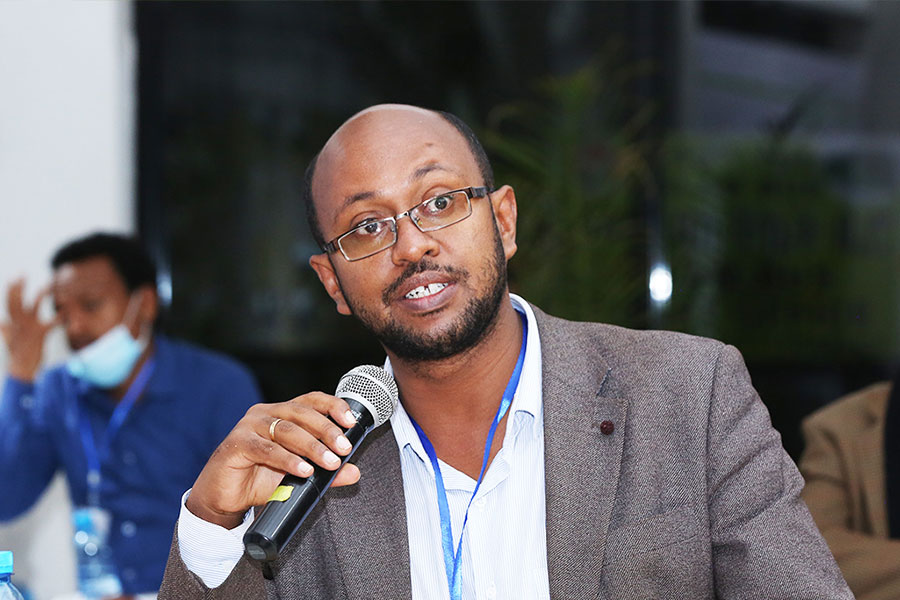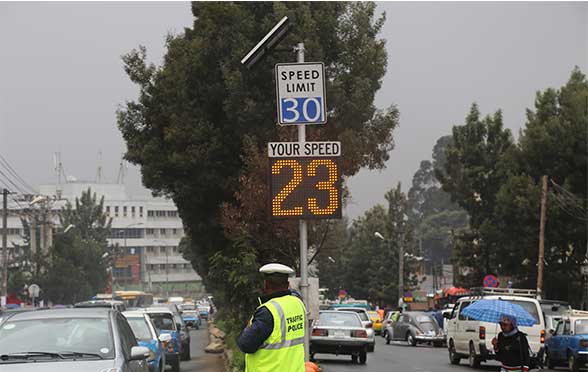
A harsh reality unfolds beneath the veneer of Addis Abeba's urban life. A line snaked around the Hope Enterprise's Feeding Centre, on Churchill Road, where several from various backgrounds converge, united by a common struggle – hunger. They wait under the scorching sun for a meal that offers a brief respite from the gnawing pangs of poverty, deepened by the dire housing crisis gripping the city's less fortunate. The Centre, one of 21 across the city, is a lifeline for nearly 40,000 people, many displaced or plunging into deprivation by soaring inflation. It provides up to 700 meals daily, mirroring the city's growing desperation.
The individual struggles, such as that of Minassie Eshetu, a young migrant from the Wolaita Zone working as a shoe cleaner, expose the broader economic trials. His story represents many young Ethiopians who have migrated to the capital seeking better opportunities but are trapped by high living costs and limited job prospects. The story of Zeinab, who shares a small room with six others near Autobis Tera, illustrates the depth of the crisis. After her husband's death, she moved from Jimma, Oromia Regional State, seeking a better life in the capital. However, like many others, she has been overwhelmed by the spiralling cost of living.
Ethiopia's economic situation is grim and more evident in the capital. With inflation surging to 37pc last year, the hardship has sent prices for essential commodities like Teff, onions, and flour skyrocketing. Although inflation has been moderating recently, the rising cost of living crisis has pushed urban households, already vulnerable, into further distress. The account of Birtukan Taddese, a street cleaner and beneficiary of the Urban Safety Net Program, depicts the struggle. Despite her and her husband's jobs, their family of four barely manages to afford food, relying heavily on government aid and school feeding programs.
Addis Abeba's poverty crisis is complex, driven by conflict, high inflation, and social inequalities. The United Nations Development Programme (UNDP) reports a significant rise in poverty in regional states like Tigray and Amhara. In urban centres, previously seen as hubs of opportunities, poverty rates have escalated alarmingly. The World Bank's Safety Net program attempts to address this through various initiatives. Private organisations like the Macedonia Humanitarian Association, run by Binyam Belete, struggle to fill the void. They provide accommodations and food assistance for thousands, reflecting the growing demand for aid, but the challenge remains immense.
You can read the full story here
PUBLISHED ON
Nov 18,2023 [ VOL
24 , NO
1229]

Fortune News | Jul 15,2023

Fortune News | Aug 31,2019

Fortune News | Sep 06,2020

Fortune News | Jan 19,2019

Featured | Sep 07,2025

Dec 22 , 2024 . By TIZITA SHEWAFERAW
Charged with transforming colossal state-owned enterprises into modern and competitiv...

Aug 18 , 2024 . By AKSAH ITALO
Although predictable Yonas Zerihun's job in the ride-hailing service is not immune to...

Jul 28 , 2024 . By TIZITA SHEWAFERAW
Unhabitual, perhaps too many, Samuel Gebreyohannes, 38, used to occasionally enjoy a couple of beers at breakfast. However, he recently swit...

Jul 13 , 2024 . By AKSAH ITALO
Investors who rely on tractors, trucks, and field vehicles for commuting, transporting commodities, and f...

Oct 25 , 2025
The regulatory machinery is on overdrive. In only two years, no fewer than 35 new pro...

Oct 18 , 2025
The political establishment, notably the ruling party and its top brass, has become p...

Oct 11 , 2025
Ladislas Farago, a roving Associated Press (AP) correspondent, arrived in Ethiopia in...

Oct 4 , 2025
Eyob Tekalegn (PhD) had been in the Governor's chair for only weeks when, on Septembe...